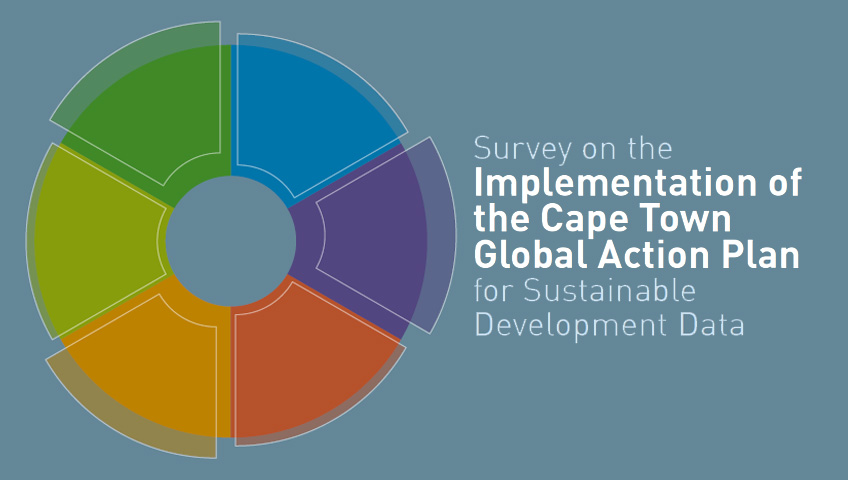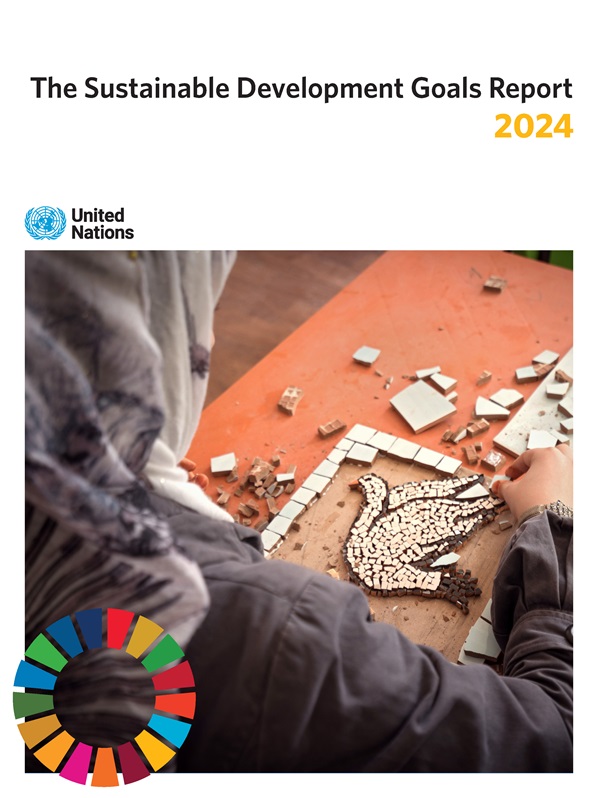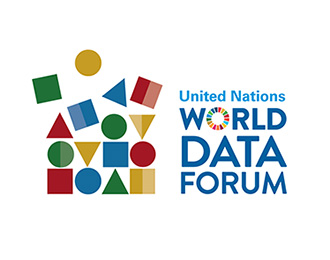Events
Expert Group Meeting on the indicator framework for the post-2015 development agenda
The Expert Group Meeting on the indicator framework for the post-2015 development agenda (EGM) took place on 25 and 26 February 2015 in New York. The 110 participants of the EGM included representatives from 22 countries, 28 agencies, funds and programmes and three United Nations Regional Commissions. Approximately 40 observers from civil society, academia and Permanent Missions to the United Nations also attended the meeting.
The meeting aimed to discuss the organization of work and the key elements and principles for the development and design of the indicator framework for the post-2015 development agenda. The discussion focused on the overall process, rather than on indicator proposals in specific areas. Yet, a few individual indicators were reviewed for illustration purposes, informing the discussion.
The conclusions of EGM meeting were provided as a background document to the forty-sixth session of the Statistical Commission the following week, under agenda item 3 (a) Data in support of the post-2015 development agenda (i) Broader measures of progress.
Main points of consensus
- It is necessary to define an architecture for an integrated monitoring framework which would include global indicators and different levels of regional, national and thematic monitoring;
- The global level monitoring framework should be limited to a small number of indicators;
- Such indicators should be selected on the basis of an agreed set of criteria;
- The initial proposal for indicators to be put forth by the Statistical Commission is expected to be further refined and reviewed by the Commission at its sixty-seventh session, to take place in 2016;
- A mechanism such as an Inter-agency and Expert Group on Sustainable Development Goal (SDG) Indicators (IAEG-SDGs) should be established.
- It is necessary to ensure national ownership of indicators (including of the estimation process);
- It is necessary to ensure disaggregation of indicators and to include a human rights dimension to the indicator framework (following the “no one left behind†principle);
- It is necessary to further strengthen national statistical capacity, including by mobilizing the necessary resources;
- It is important to draw from existing integrated statistical frameworks;
- It is important to build on the Millennium Development Goals experience and lessons learnt.
Wednesday, 25 February 2015
Morning session 9:30am—1:00pm
- 1Welcome
-
2Opening
- -Mr. Stefan Schweinfest, UN Department of Social and Economic Affairs/Statistics Division (UNSD)
-
3Overview of the roadmap for the development and implementation of an indicator framework for the post 2015 development agenda
-
-Mr. Philippe Cuneo UN Statistical Commission-Friends of the Chair on Broader Measures
Presentation - -Q&A session
-
-Mr. Philippe Cuneo UN Statistical Commission-Friends of the Chair on Broader Measures
-
4Architecture of the indicator framework
-
-Mr. David O'Connor, UN Department of Social and Economic Affairs/Division for Sustainable Development
Background document Presentation -
-Mr. Matthias Reister, United Nations Statistics Division (UNSD)
Background document Background note Presentation -
-Ms. Ola Awad Shakhshir, State of Palestine
Presentation -
-Ms. Tiina Luigi, Economic Commission for Europe
Background note
-
-Mr. David O'Connor, UN Department of Social and Economic Affairs/Division for Sustainable Development
Afternoon session 2:00pm—5:30pm
-
5Lessons learned from Millennium Development Goals Monitoring (including subnational), and the way forward
-
-Mr. Neil Fantom, World Bank
Background note Presentation -
-Ms. Holly Newby, UNICEF for IAEG on MDGs
Presentation -
-Ms. Lisa Bersales, Philippines
Presentation -
-Ms. Mary Wanyonyi, Kenya
Presentation -
-Mr. Daniel Taccari, UN ECLAC
Presentation - -Open Discussion
-
-Mr. Neil Fantom, World Bank
-
6Examples of suggested indicators by thematic and global monitoring groups
-
Voices from academia and civil society
-
-Sustainable Development Solutions Network
Background note Background document Presentation
-
-Sustainable Development Solutions Network
-
Indicator on Health
-
-Mr. Ties Boerma, WHO
Background note Presentation -
-Ms. Philomena Efua Nyarko, Ghana
Background note Background note Presentation
-
-Mr. Ties Boerma, WHO
-
Indicator on Education
-
-Ms. Alison Kennedy, UNESCO Institute for Statistics
Background note Presentation -
-Mr. Krishna Kumar, India
-
-Ms. Alison Kennedy, UNESCO Institute for Statistics
-
Indicator on Gender Equality
-
-Ms. Claudia Cappa, UNICEF
Background note Presentation -
-Ms. Norah Madaya, Uganda
Background note
-
-Ms. Claudia Cappa, UNICEF
-
Voices from academia and civil society
Thursday, 26 February 2015
Morning session 9:30am—1:00pm
-
6Examples of suggested indicators by thematic and global monitoring groups (continued)
-
Indicator on Decent Work
-
-Mr. Rafael Diez de Medina, ILO
Background document Presentation -
-Ms. Lucia Spoiala, Moldova
-
-Mr. Rafael Diez de Medina, ILO
-
Indicator on Human Settlement
-
-Mr. Eduardo Moreno, UN Habitat
Presentation -
-Mr. Pali Lehohla, South Africa
Presentation
-
-Mr. Eduardo Moreno, UN Habitat
-
Indicator on Sustainable Industrialization and Innovation
-
-Mr. Shyam Upadhyaya, UNIDO
Background note Background note Presentation -
-Ms. Viveka Palm, Sweden
-
-Mr. Shyam Upadhyaya, UNIDO
-
Indicator on Governance
-
-Ms. Angela Me, UNODC and Mr. Henk-Jan Brinkman, Peacebuilding Support Office
Presentation -
-Ms. Badamtsetseg Batjargal, Mongolia
Background note
-
-Ms. Angela Me, UNODC and Mr. Henk-Jan Brinkman, Peacebuilding Support Office
-
Indicator on Decent Work
-
7Criteria for the selection of indicators and principles for operationalizing target monitoring
-
Selection of indicators for global monitoring: an overview
-
-Ms. Fabia Yazaki, UNSD
Presentation
-
-Ms. Fabia Yazaki, UNSD
-
Examples of selection of key indicators
-
-Mr. Pietro Gennari, FAO
Background note Presentation -
-Ms. Ludgarde Coppens, UNEP
Background note Presentation -
-Mr. Rifat Hossain, WHO
Background note Presentation
-
-Mr. Pietro Gennari, FAO
-
Elements of data disaggregation
-
-Ms. Linda Hooper, UNSD
Background note Presentation -
-Mr. Atilla Hancioglu, UNICEF
Presentation -
-Mr. Atilla Hancioglu, UNICEF
Presentation
-
-Ms. Linda Hooper, UNSD
-
Operationalizing target monitoring
-
-Ms. Yongyi Min, UNSD
Presentation
-
-Ms. Yongyi Min, UNSD
-
Selection of indicators for global monitoring: an overview
Afternoon session 2:00pm—5:00pm
-
8Planning the work ahead
-
Multi-stage process, including initial proposals for indicators
-
-Mr. Luis Gonzales Morales, UNSD
-
-Open discussion
-
-Mr. Luis Gonzales Morales, UNSD
-
Establishment of Inter-Agency and Expert Group on Sustainable Development Goals and its working groups
-
-Mr. Luis Gonzales Morales, UNSD
Presentation -
-Open discussion
-
-Mr. Luis Gonzales Morales, UNSD
-
Multi-stage process, including initial proposals for indicators
- 9Conclusions of the meeting
Main documents
Background documents
Statements and inputs
- OHCHR - A Human Rights Approach to Data Disaggregation to Leave No One Behind
- OHCHR - Statistics and Human Rights
- Partnership on Measuring ICT for Development - Joint proposal of ICT indicators for SDG indicator framework
- Statistics Netherlands - Aligning SDG indicators with CES conceptual framework
- Statistics Netherlands - Measuring SD in RIO+20
- Statistics Sweden - Using the right environmental indicators
- Statement by the UNDG Human Rights Working Group
- UNEP - Design and development of integrated indicators for the Sustainable Development Goals
- WMO-UNFCCC - Indicators for monitoring global action to address climate change in the context of sustainable development goals (SDGs): The WMO-UNFCCC proposal
QUICK LINKS
- 2030 Agenda for Sustainable Development
- SDGs Database
- 2025 Comprehensive Review Process
- Survey on the Implementation of the Cape Town Global Action Plan for Sustainable Development
Data

- SG's progress report 2024
- Statistical Annex 2024
- SDGs report 2024

- Gender Snapshot 2024
- UN Data Commons for the SDGs
-

- Medellin Framework for action on data for sustainable development
- Hangzhou Declaration
- Bern Data Compact
- Cape Town Global Action Plan for Sustainable Development Data
- Dubai Declaration
- Global data community's response to Covid-19
- Statistical Commission
Conference Room 3, UN Headquarters